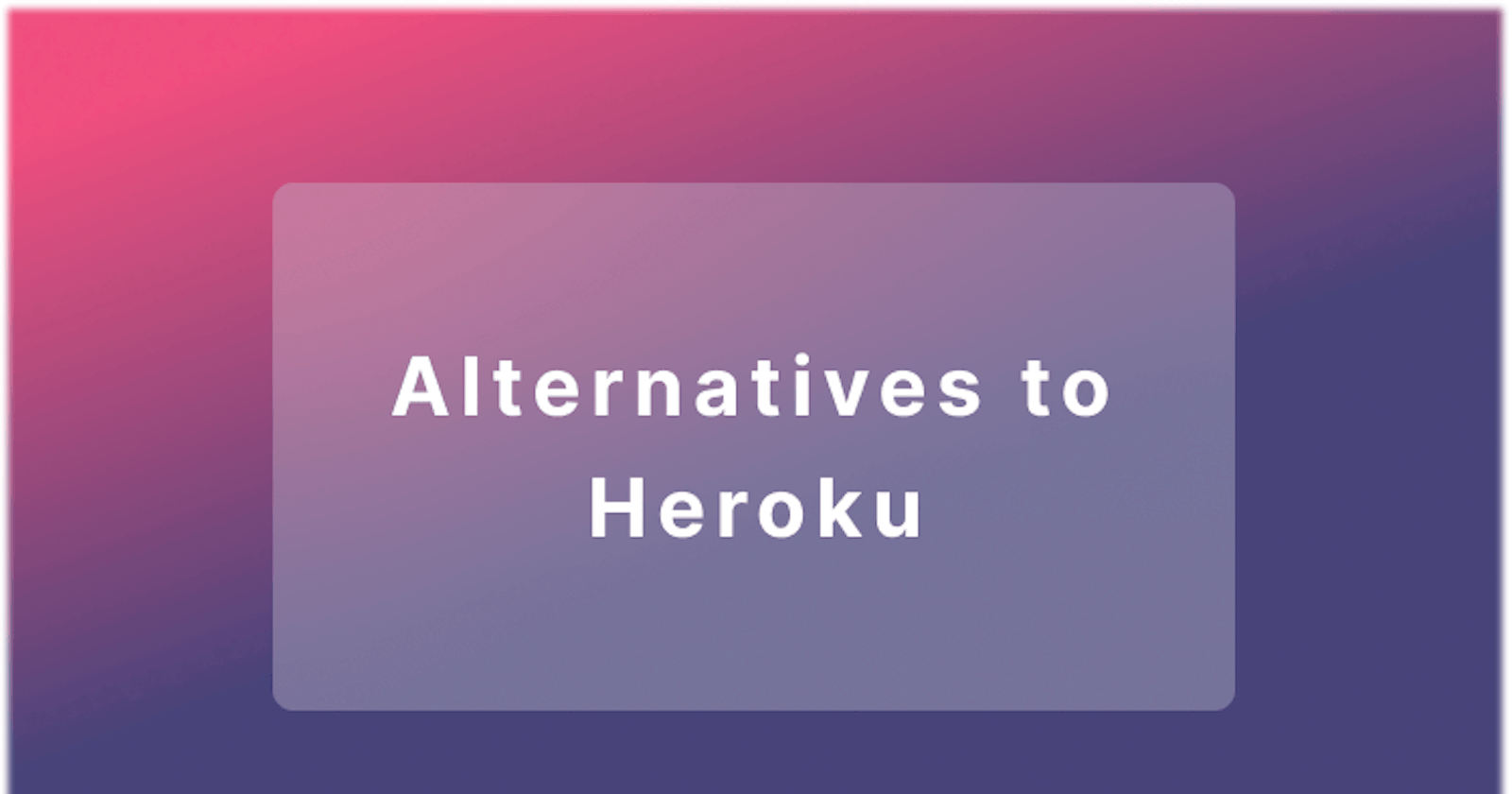Table of contents
Heroku has become well known among developers today for managing applications' underlying infrastructure, such as servers, databases, etc., so developers no longer have to worry about them. As such, it simplifies the process of building, scaling, and deploying of applications. With Heroku, developers can quickly deploy and manage apps on a fully-managed, scalable cloud platform - as well as being used by businesses to host, prototype, and launch startup ideas. A great deal of its popularity came from its ability to host diverse projects, extensive programming language support, and ease of use.
Until recently, Heroku was one of the most popular PAAS options for developers looking to deploy apps for free and then scale up with paid plans when needed. However, Heroku recently announced the end of its popular free tier plans, effective November 28, 2022. This signifies the end for many people, especially independent developers, non-profits, and hobbyists, who have their apps hosted on these free plans and beginners who use Heroku to host app demos, APIs, and to learn how to deploy apps.
Furthermore, it has been hinted that Heroku could be rebranded or discontinued in lieu of Salesforce's cloud offering as part of project Periwinkle. As a result, Heroku users wonder what to do next - especially following recent security incidents and outages. Due to these developments, users are now considering alternatives to the platform to migrate their existing apps. This article explores a few alternatives to Heroku for those seeking other options for deploying their next app or migrating their existing app.
Render
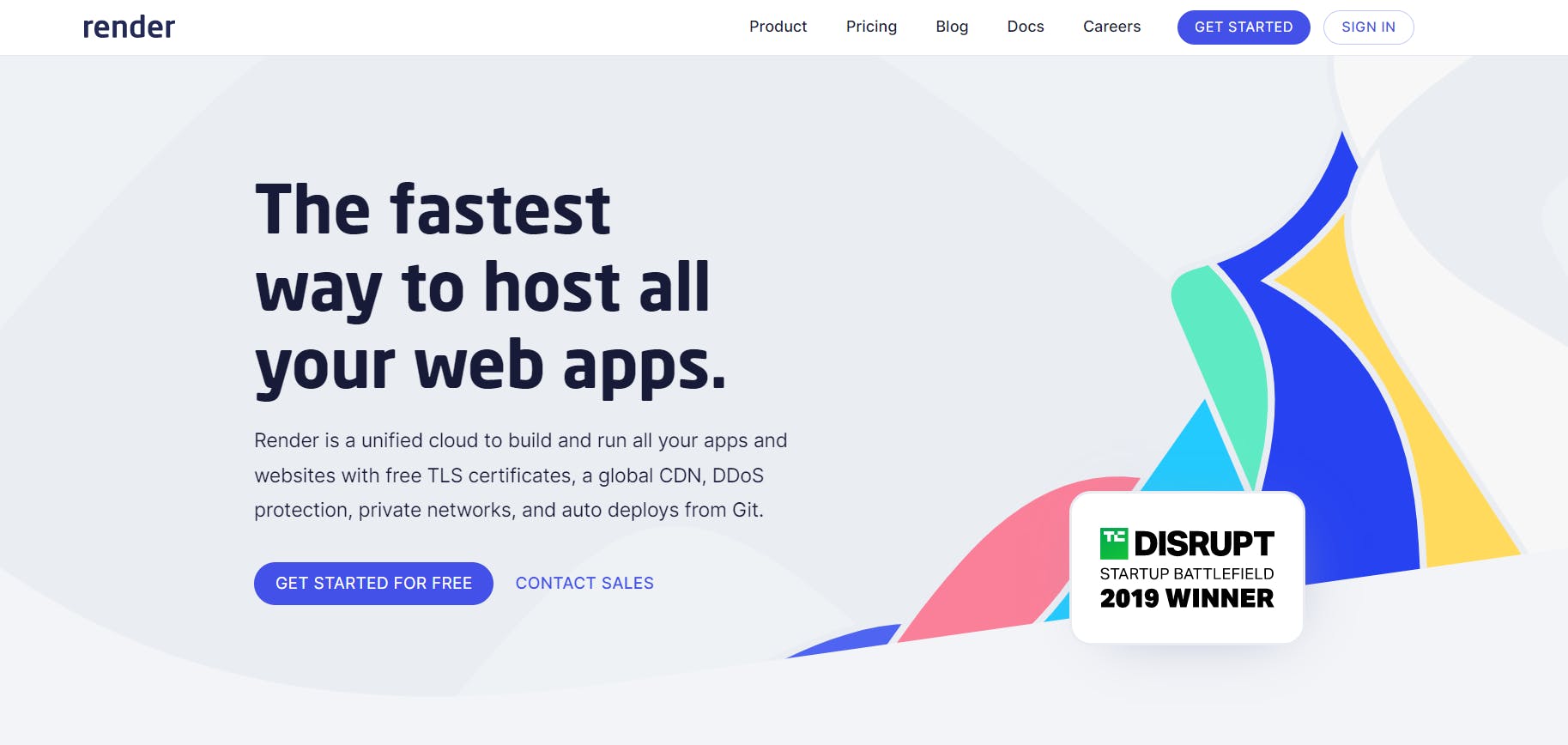
Render is a multi-cloud platform that closely resembles Heroku as far as features and functionality are concerned. The platform positions itself as Heroku's competitor by offering more flexibility, predictable pricing, and a more effortless user experience. Using Render, you can develop static apps and backend servers, deploy Docker containers, manage databases, and easily set cron jobs. The platform also makes it easy to migrate from Heroku.
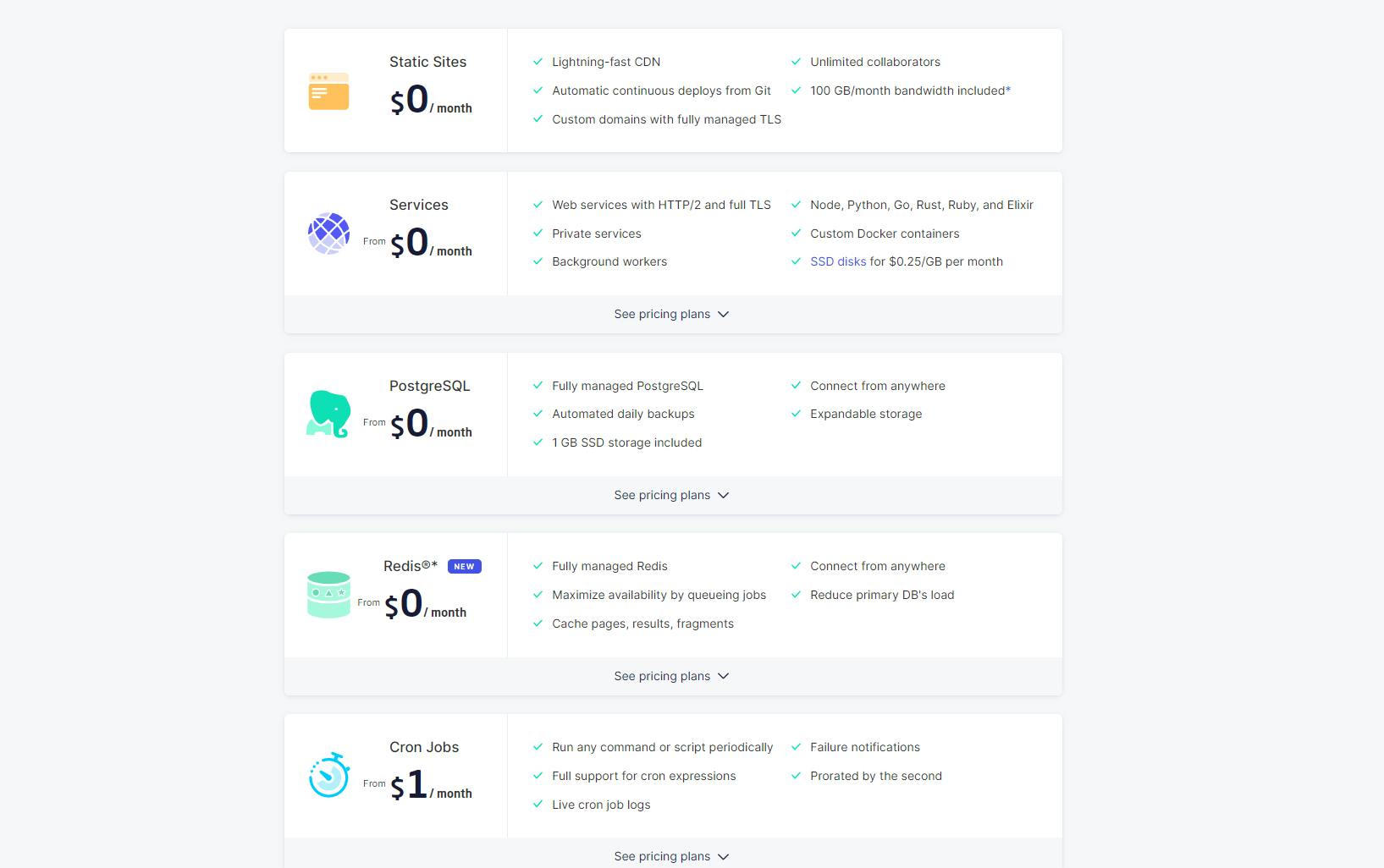
Render offers free tier plans for apps with auto-sleep on inactivity just like Heroku (sleeps after 15 minutes, 30s spin-up). For the first 90 days, the Postgres database is free, after which, the paid version starts at $7/month. Furthermore, a single database can be linked to all of your apps, which only costs $7/month. Similarly to Heroku, you can install as many apps as you like, as long as your total monthly runtime usage does not exceed 750 hours.
Fly.io
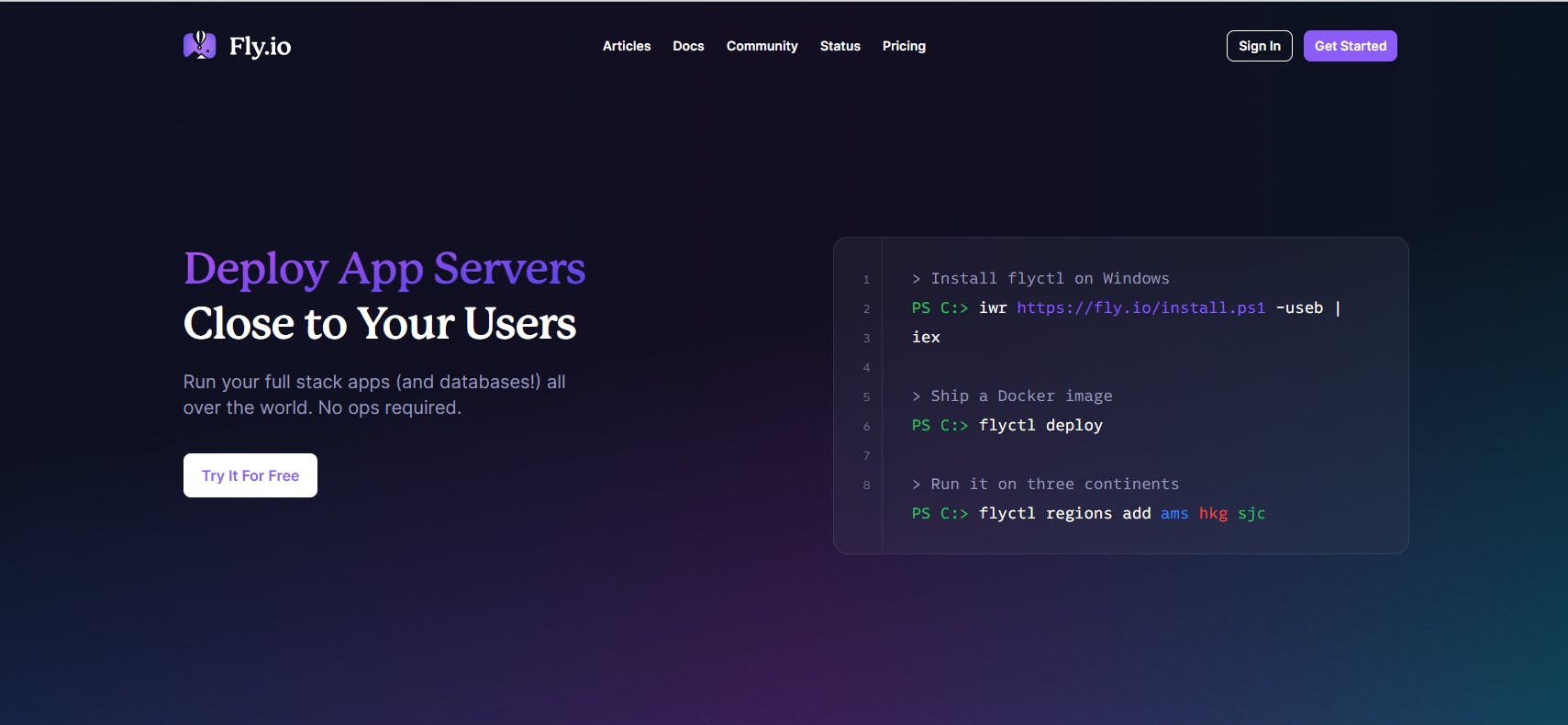
Fly.io is a Docker-driven platform that lets you deploy app servers and run full-stack applications (and databases) around the world, closer to your users, i.e., at the Edge - without requiring any ops. Furthermore, Fly.io provides the exact resources you need for your application to fly - you simply pay for only what you use.
Compared to Heroku, whose superpower is its DX, Fly.io prides itself on its ability to scale applications across the globe and run clusters of services. Additionally, Fly.io is a CLI-first platform - so if you dislike CLIs, it's probably not for you. Furthermore, they have an automatic Heroku migration tool that makes migration easy.
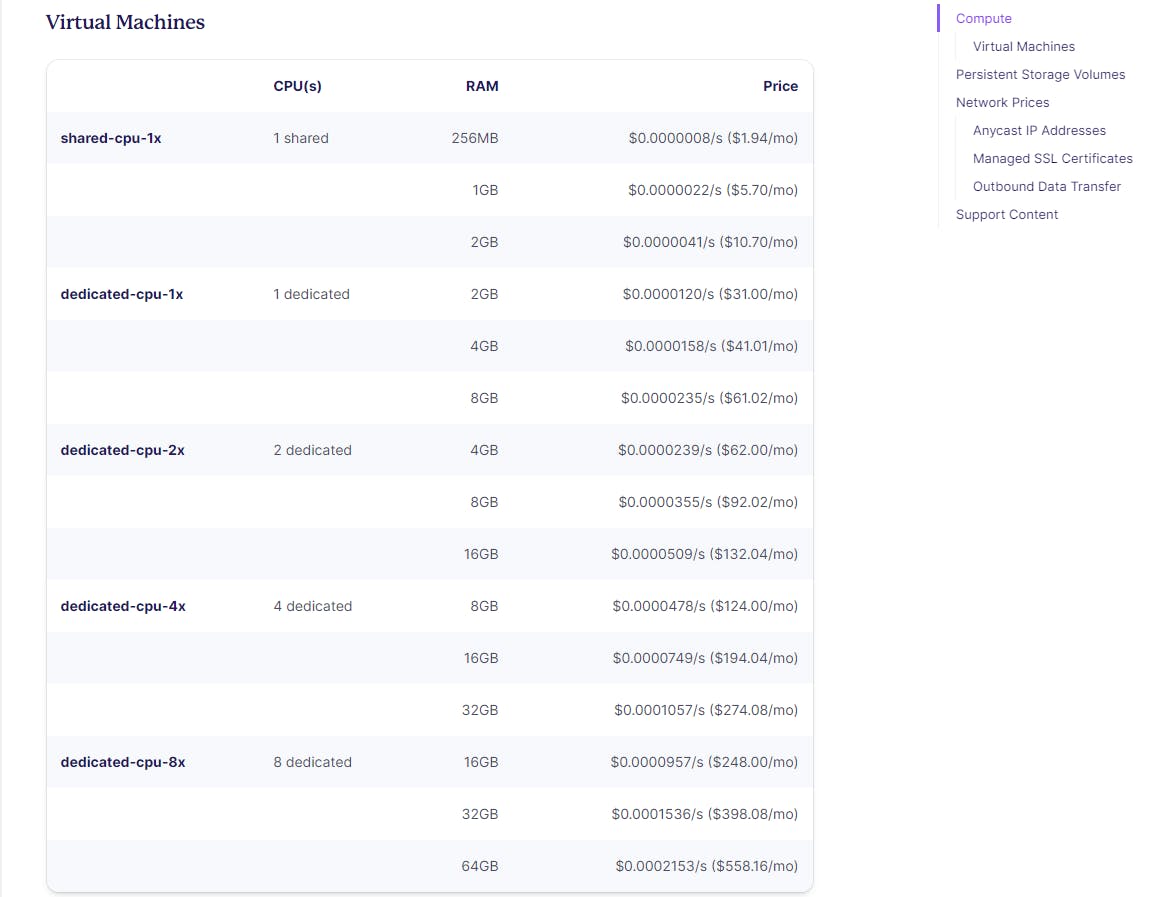
Despite not being as feature-rich as Heroku, the platform offers a generous pricing model designed to enable you to run small apps for free (requires credit card) and scale costs at an affordable rate as your needs grow. Resources in their base free-tier plan include Up to 3 shared-cpu-1x 256MB VMs, 160GB outbound data transfer, and 3GB storage volumes.
Railway
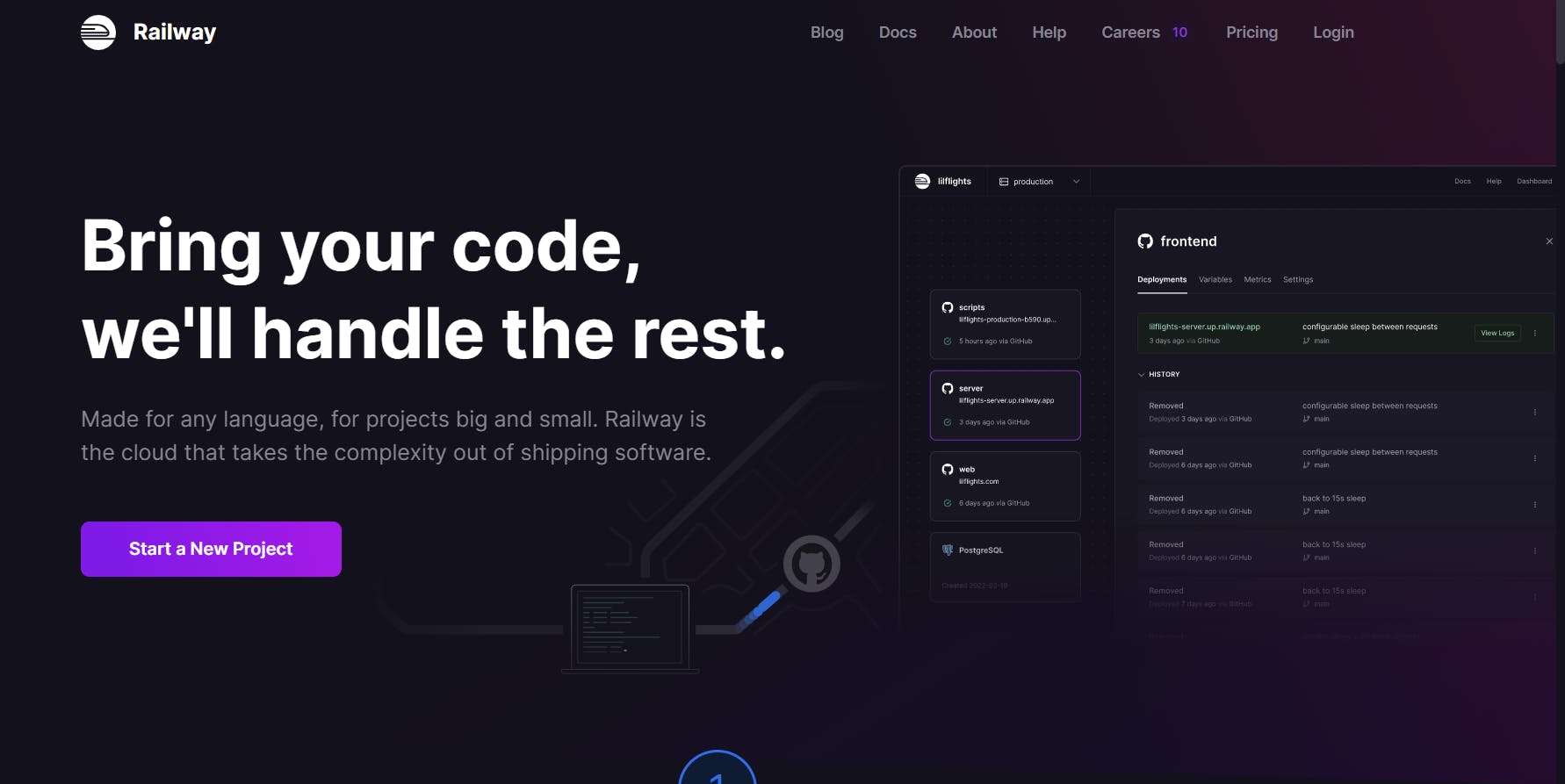
Another alternative to Heroku is Railway, a cloud infrastructure provider that enables you to develop and deploy your apps to the cloud instantly using their software infrastructure. Despite being a relatively new and less popular platform compared to Heroku, Railway offers a reasonable Free Tier and Incredibly generous pricing where basic usage is relatively cheap.
Railway's free tier offering includes 512 MB RAM, 1 GB disk storage, 100 GB egress monthly traffic, docker/templates, free SSL certificate, and $5 monthly credit - resources would not be charged until $10 usage. Furthermore, the platform has database support for Redis, MySQL, and Postgres.
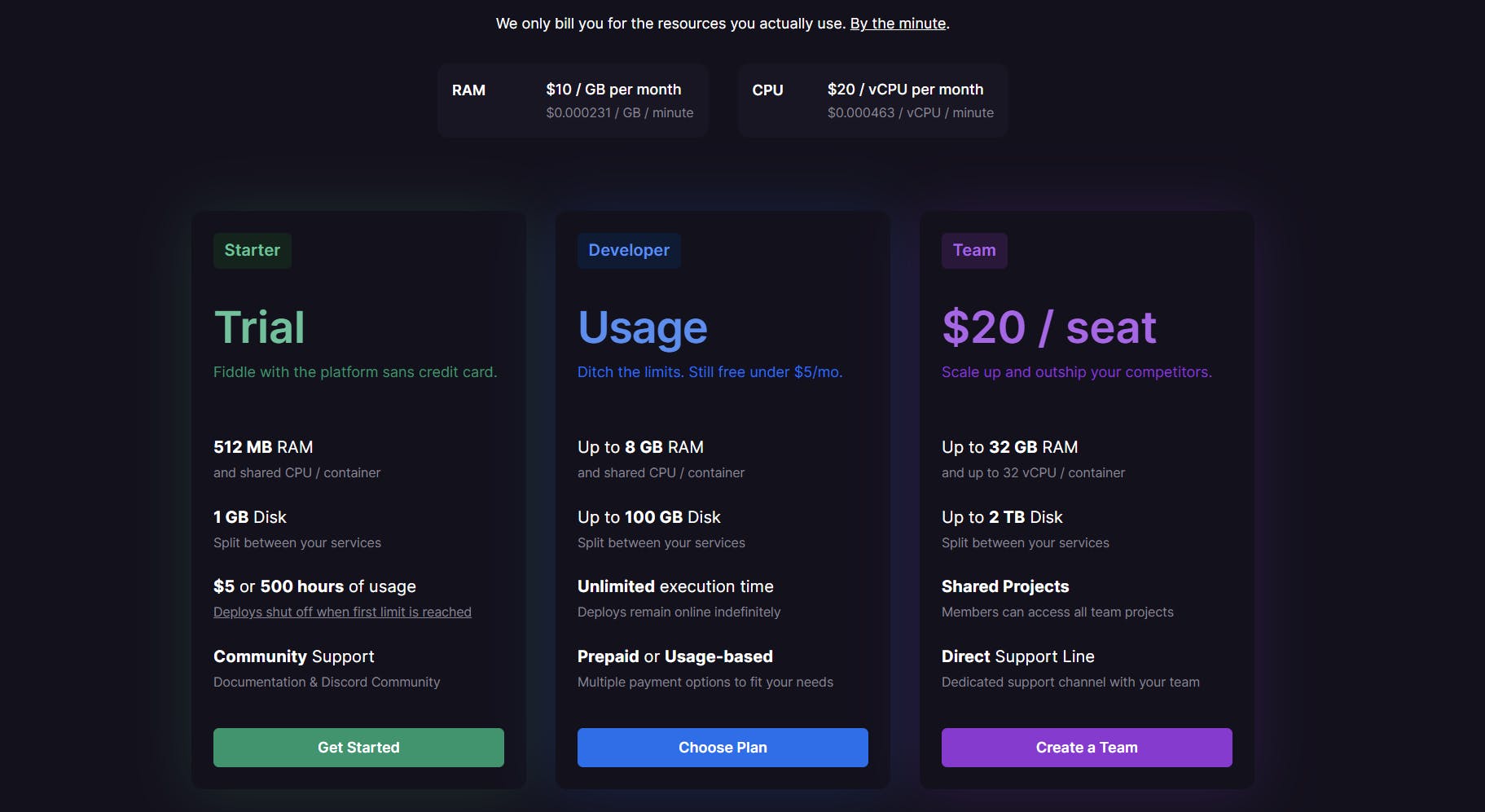
Interestingly, Railway allows you to start without a credit card, and all configuration needs to be done through its slick and intuitive web UI dashboard. However, this might limit advanced users as the dashboard isn't very advanced but gets the job done. You can also view CPU, memory, and network metrics on your database usage in the dashboard, which is unavailable in Heroku's free tier. Additionally, you can view and create SQL queries directly via a web form in the dashboard.
Porter
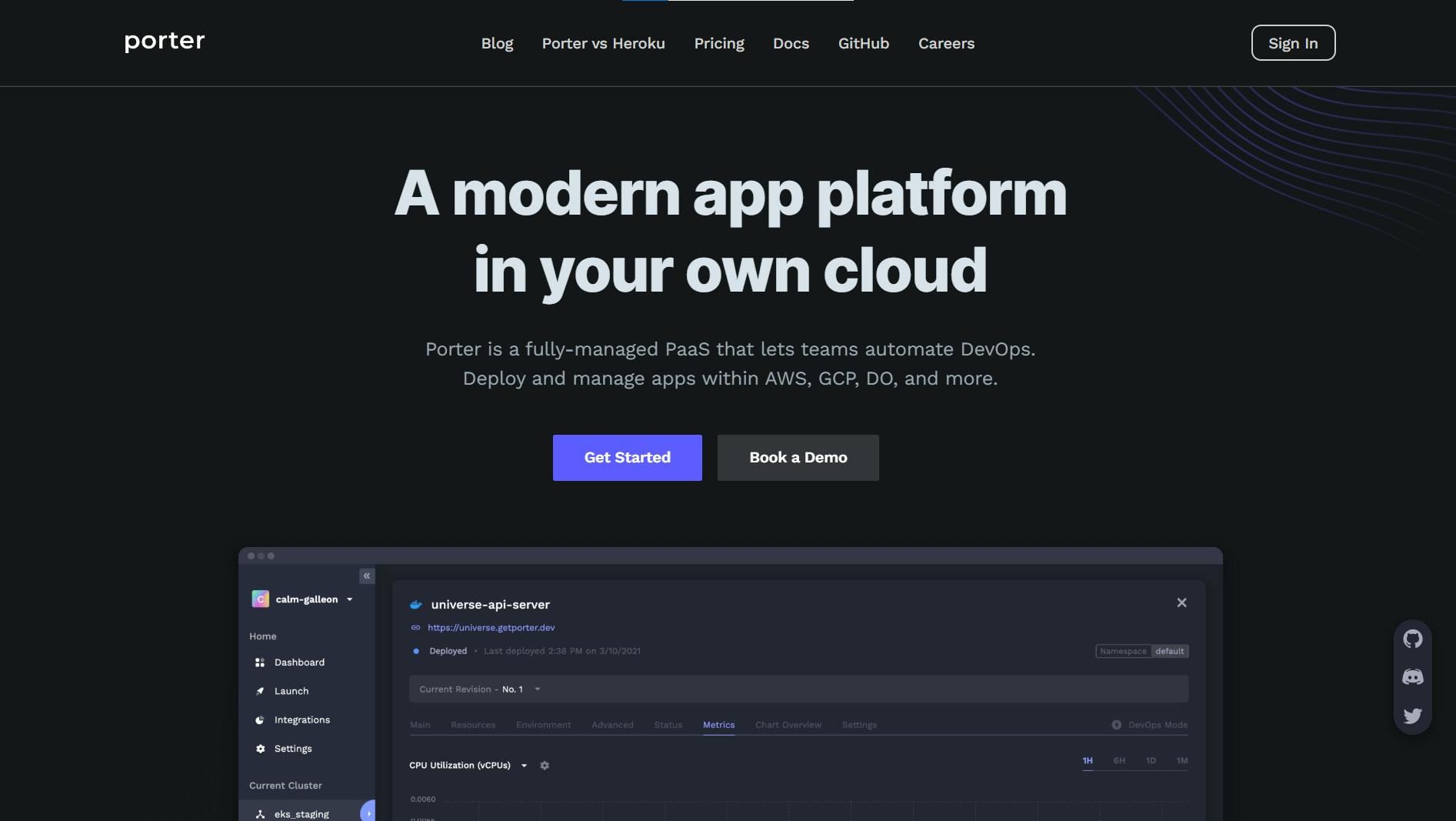
Portal is a fully-managed Open-Source PaaS that allows teams to automate DevOps, deploy, and manage applications within AWS, GCP, DO, and more. In addition to their managed cloud solution, they also offer a self-hosted option, which gives you total control over your backend. Portal is an excellent option for people who want to manage their own infrastructure instead of hosting on PaaS platforms. It is this feature that distinguishes Porter from the rest of the other Heroku alternative solutions.
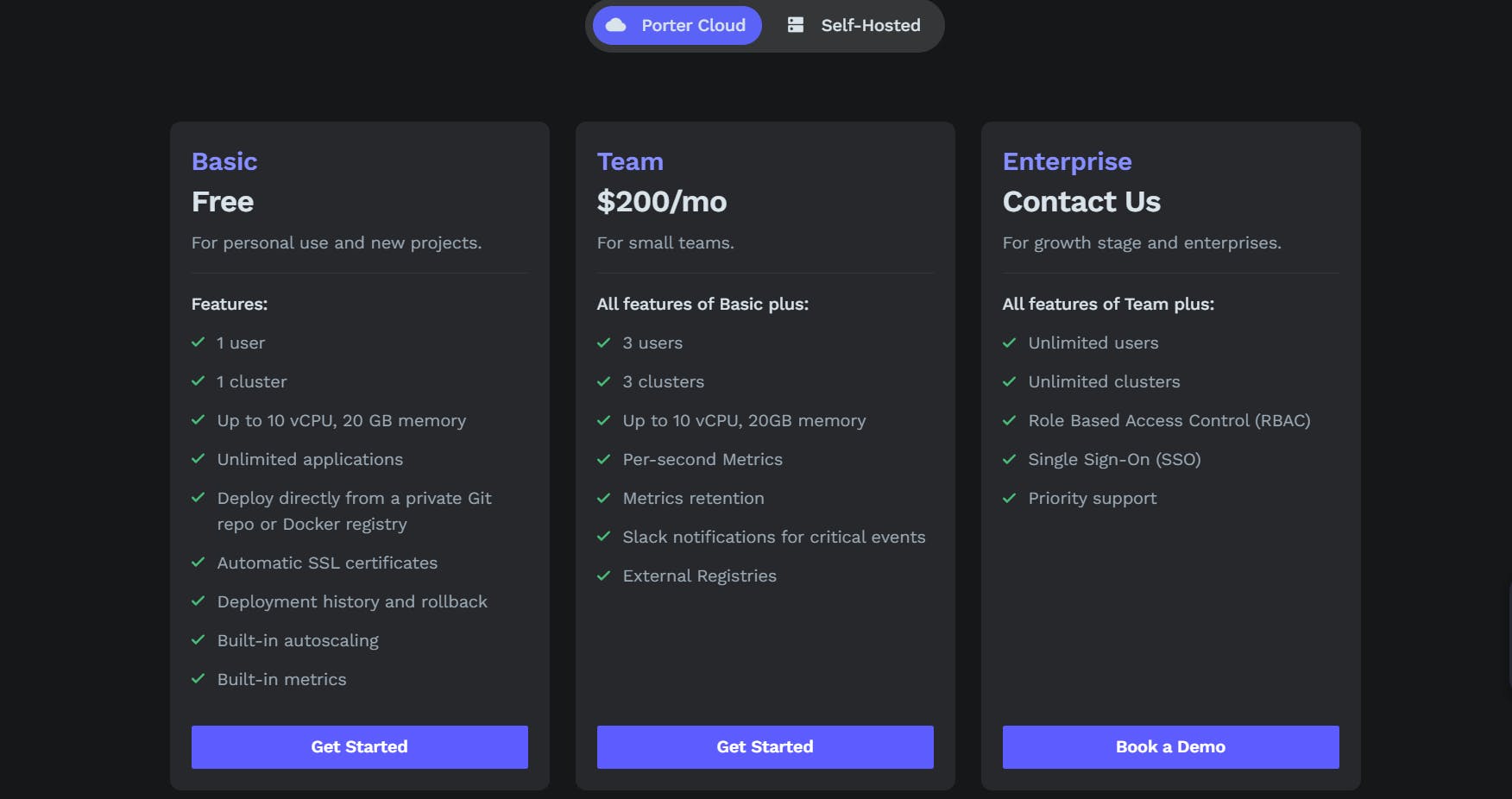
The platform offers generous Free Tier plans for both its Cloud hosting and Self-Hosted services. The Cloud hosting free plan supports 1 user, 1 cluster, Up to 10 vCPU, 20 GB memory, Unlimited applications, automatic SSL certificates, deployment history and rollback, built-in autoscaling, and direct deployment from a private Git repo or Docker registry. The Self-hosted free plan also supports 1 user, unlimited clusters, and unlimited applications and add-ons. They also make migrating from Heroku effortless as whatever runs on Heroku, can run on Porter.
Northflank
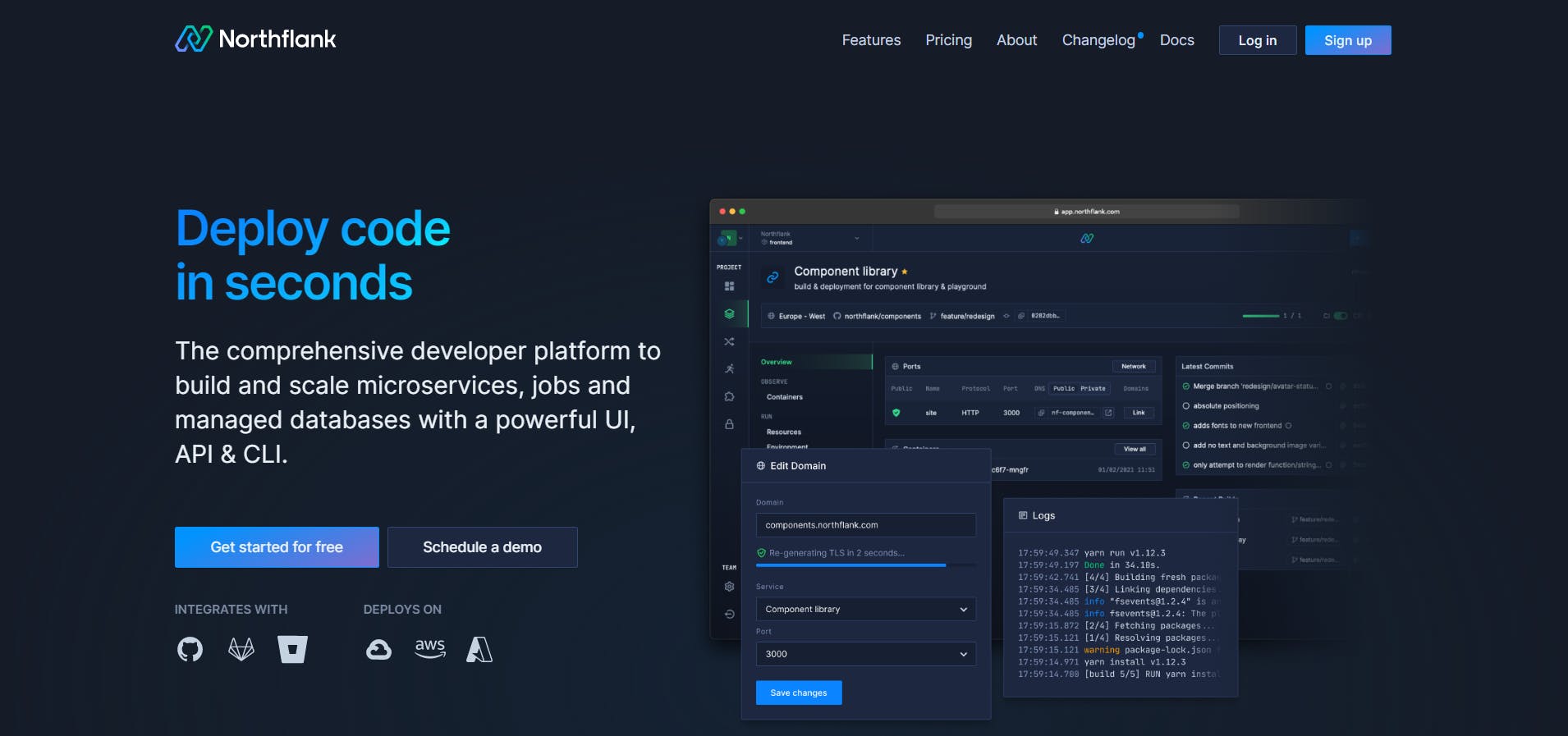
Northflank is a developer platform that gives developers the power to build and scale microservices, cron jobs and manage databases at affordable pricing. This is all done with a delightful UI, comprehensive API, and intuitive CLI, whose ease of use rivals Heroku's.
You can build, deploy, and host any code on Northflank using a Dockerfile, regardless of your language or framework. The platform supports all popular languages, frameworks, and technologies such as Docker, Node.js, Express, Next.js, Python, Django, Java, Laravel, Redis, MongoDB, MySQL, Cron jobs, and more.
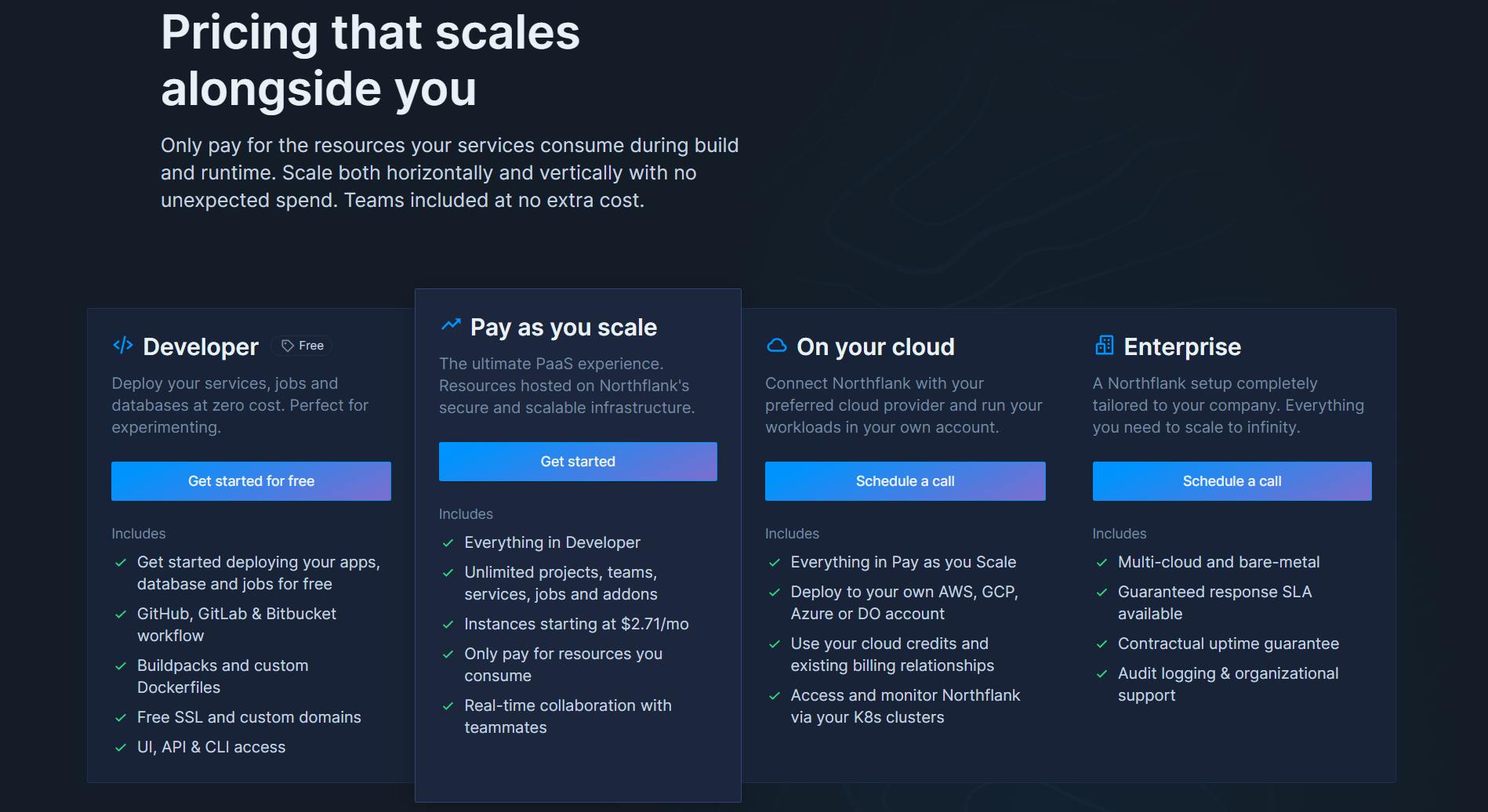
The service uses a consumption-based Pay As You Go, pricing model. You are only charged for the build and deployment resources you consume - everything else is included as standard features. With its Free Tier plan, you receive 2 services, 2 cron jobs, 1 database, free SSL, and custom domains. Details on how to migrate from Heroku to Northflank may be found in this documentation.
Koyeb
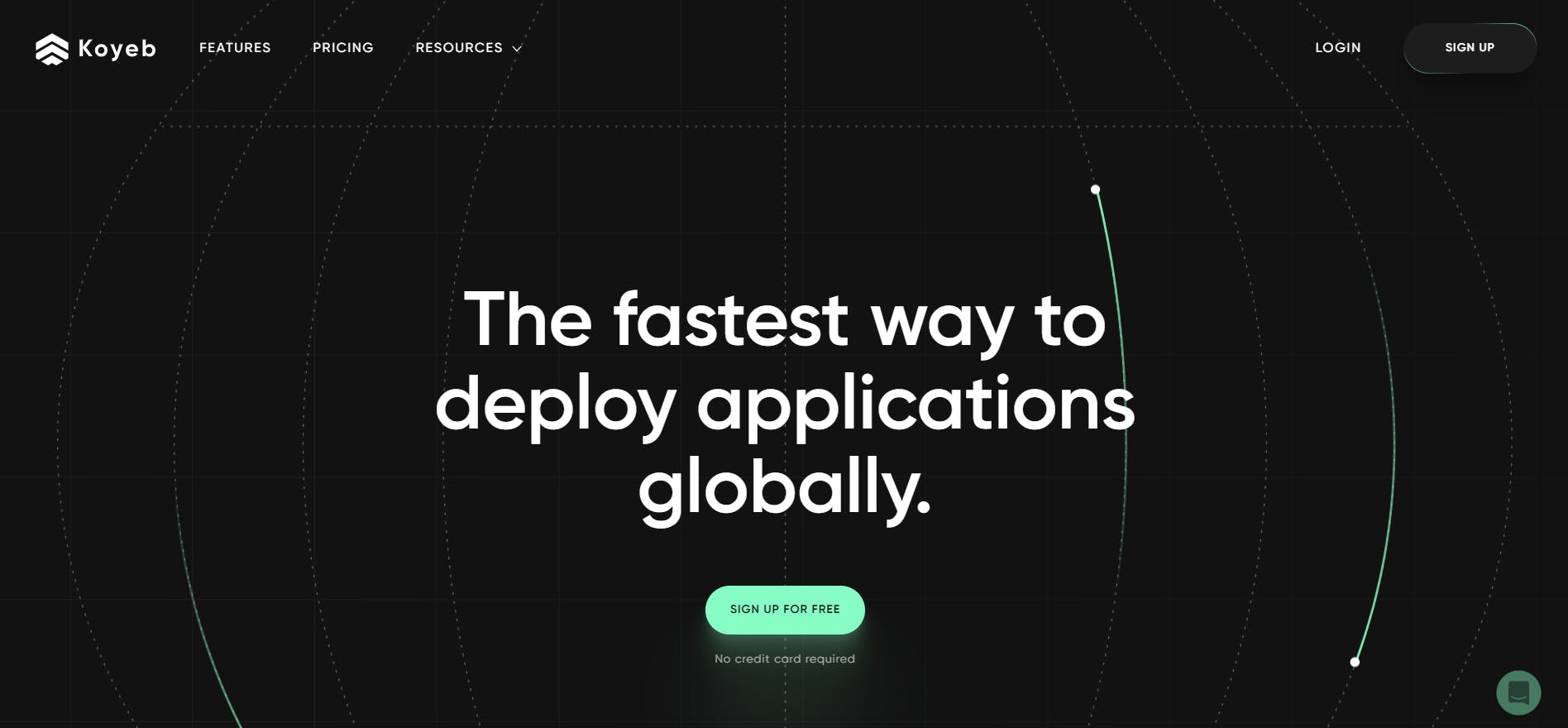
Koyeb provides developers with a serverless platform for deploying apps globally. You can deploy Docker containers, web apps, cron jobs, and APIs effortlessly using the platform. Furthermore, the platform offers a smooth developer experience for deploying applications using standard Docker containers or directly from your git repositories with git-based deployments.
The company offers a forever-free tier plan with up to 2GB of RAM per service and an additional $5 free monthly credit (without requiring any credit card). The standard features include: High-performance edge network; Built-in autoscaling; Infrastructure auto-healing; Service mesh & discovery; Automatic OS patching; A pay-per-use by the second pricing modal.
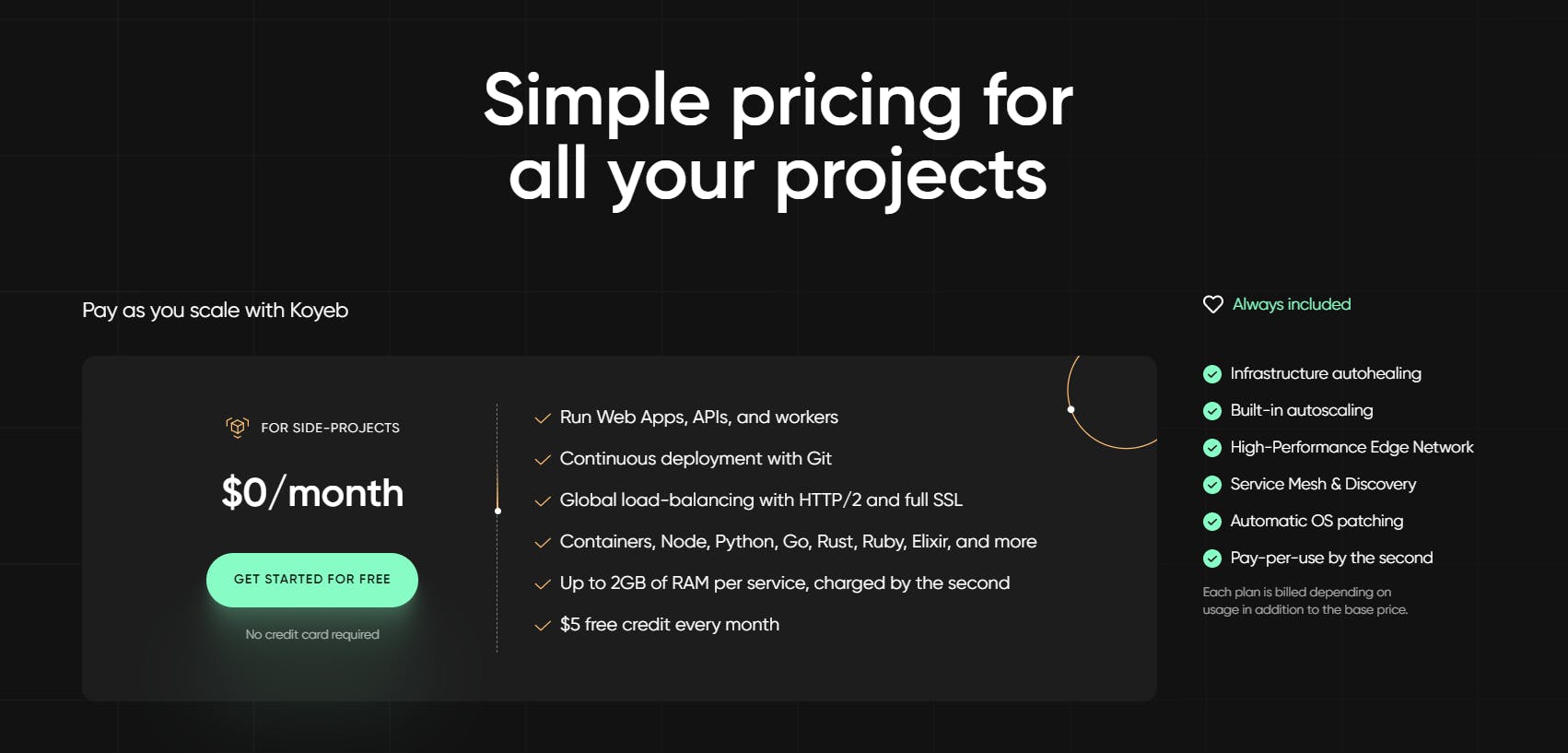
This guide explains how you can quickly deploy and migrate your Heroku apps to Koyeb.
Qoddi.com
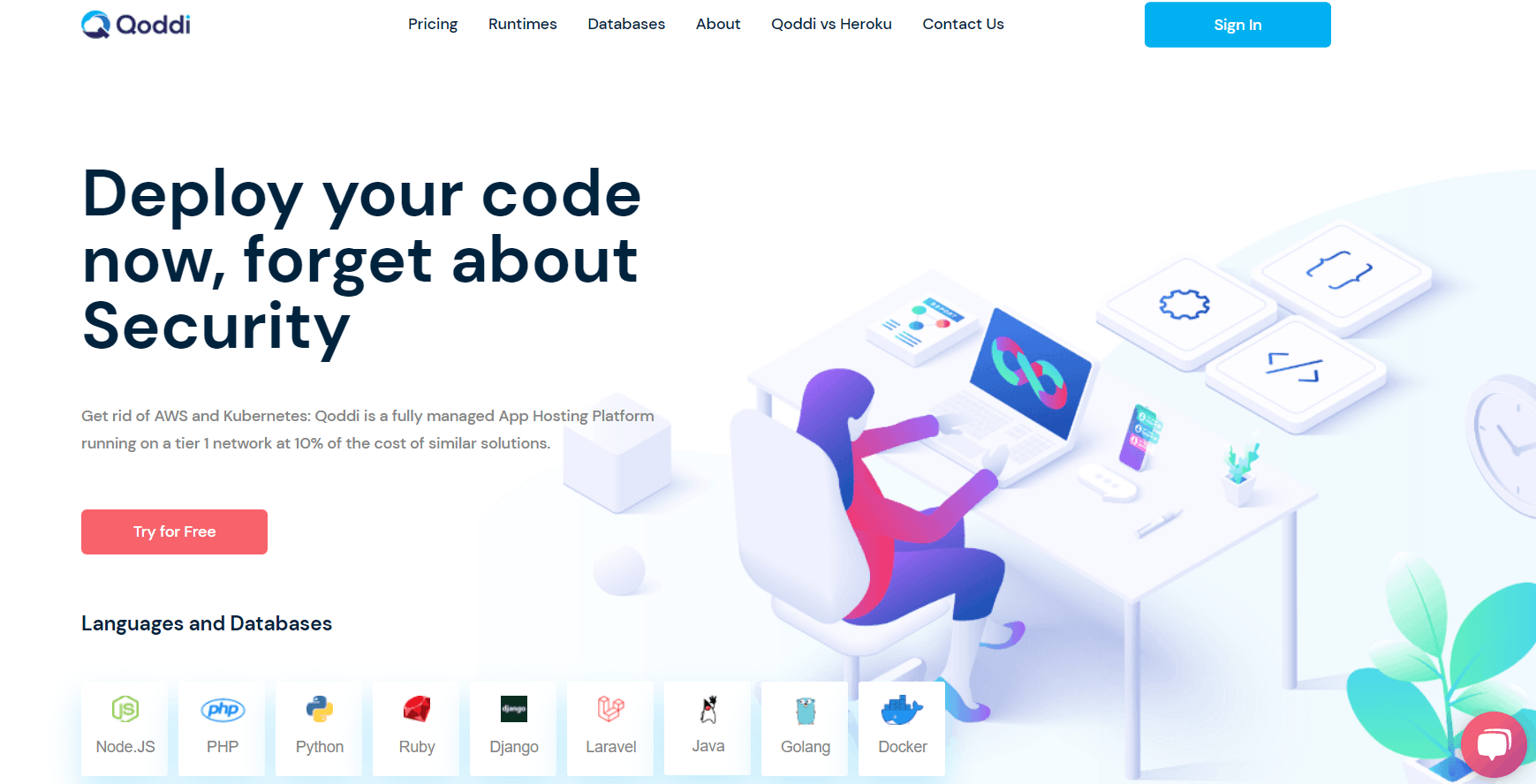
Developed for business and free for developers, Qoddi.com is a fully managed PaaS hosting platform operating on a Tier 1 network, which costs 10% less than similar solutions. Rather than building your application and deploying it to a server, Qoddi clones your code from git, builds it using powerful sets of builders and deploys it for you. It also takes care of everything, including servers, networks, load balancers, security, and updates for you.
Among the languages and frameworks supported by Qoddi is Node. Python, PHP, Django, Ruby, Java, Docker, MySQL, MongoDB, Redis, Postgres, etc. It also works with any Git client, including GitHub, Bitbucket, and GitLab. Their free-forever plan offers 1 vCPU, 256MB RAM, unlimited traffic, 3 free apps, and never sleeps (always on) - However, there are no custom domains.
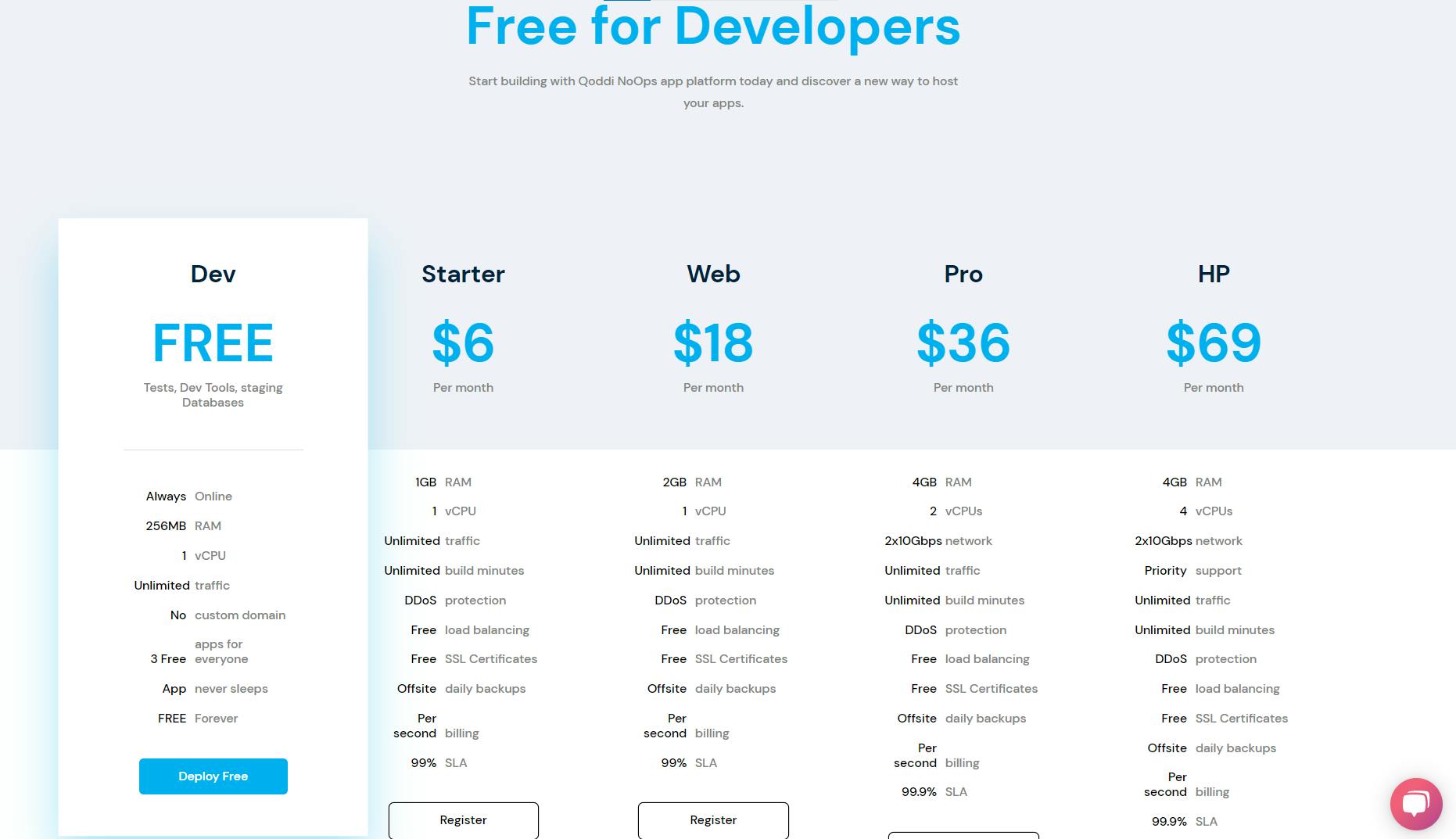
You can learn how to migrate from Heroku to Qoddi using this guide.
Conclusion
There are several other Heroku alternatives out there besides those listed here. Whether big or small, proprietary or open source, there is no shortage of options. However, these seem to be the most compelling solutions for Heroku. They offer most of the features Heroku offers and come bundled with Free Tier plans - making them excellent alternatives.
You can also check out this excellent Free for Devs or Github PaaS list if these don't quite meet your requirements.

